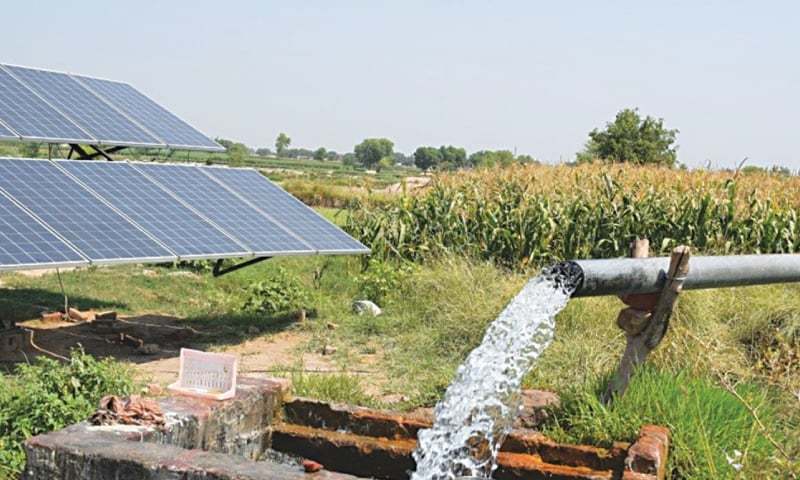Introduction
https://unisolar.pk/solar-system-for-agriculture-in-pakistan/
Agriculture is not merely a sector in Pakistan; rather, it is the backbone of the nation’s economy. It employs almost 42 percent of the national labor force and contributes a significant amount to the country’s gross domestic product. Nevertheless, this essential industry faces significant challenges, particularly in managing water and providing electricity. Pakistan has begun to transform these problems into opportunities through the implementation of a solar system for agricultural purposes, leading to increased production and environmentally responsible growth.
The Irrigation of Water: A Revolutionary Approach
The use of solar energy to power irrigation systems has proven to be a game-changer for Pakistani farmers. Since the beginning of time, the reliance on diesel-powered pumps has not only led to an increase in operations expenses, but has also led to an increase in carbon footprints. The use of solar system for agriculture in pakistan has enabled the installation of cost-effective and environmentally friendly solar-powered water pumps. In dry places and during the peak summer months, when water is scarce, these systems offer a consistent water supply, which is very important considering the conditions.
Increased Crop Yields Achieved While Maintaining a Consistent Water Supply
Having a consistent and reliable water supply is absolutely necessary for crop stability and productivity. Farmers in Pakistan can maintain consistent soil moisture levels through irrigation systems powered by solar energy, leading to increased crop yields. It is clear that a solar system for agriculture in Pakistan is effective because it can meet the irrigation requirements of a wide range of crops. This ensures that water is accessible during crucial stages of crop growth without the need to worry about fuel shortages or power outages.
Bringing Down the Costs of Operations
When it comes to the agricultural industry in Pakistan, the adoption of solar energy has a number of major consequences, one of the most significant being the reduction in operational expenses. There is no longer a requirement for diesel or power from the grid, both of which are typically costly and subject to price fluctuations. Solar systems eliminate this requirement. Many farmers in Pakistan find it financially viable as the initial setup cost of a solar system for agriculture offsets the significant fuel and maintenance savings over time. This makes solar energy beneficial to agriculture in Pakistan.
Solar power and environmentally responsible farming are essential sources of energy.
The concept of sustainability in agriculture refers to agricultural practices that are not only beneficial to the environment but also economically feasible and result in positive social outcomes. The use of solar energy in Pakistan’s agricultural sector helps to reduce the country’s reliance on fossil fuels and the emissions of greenhouse gases, both of which contribute to the achievement of environmental sustainability. In addition, these solar systems require very little maintenance, produce less noise, and do not contribute to air pollution. As a result, they contribute to a farming environment that is healthier and more sustainable.
The government’s assistance and initiatives
The government of Pakistan has acknowledged the potential of solar energy to bring about a transformation in the agricultural environment. The government of Pakistan is encouraging farmers to adopt solar systems by implementing various programs and subsidies. These policies not only have the objective of increasing the productivity of the agricultural sector, but they also try to connect themselves with the aims of global sustainability. The government’s support has significantly increased the use of solar systems for agricultural in Pakistan, making this option a practical choice for many farmers.
Adoption Obstacles to Overcome
Despite the numerous advantages, Pakistan’s agricultural sector faces a number of obstacles in the implementation of solar power systems. Numerous small-scale farmers face a substantial obstacle in the form of the high initial investment costs incurred. In addition, there is a dearth of information regarding the potential advantages of solar systems as well as their operation. It is possible that specialized educational programs and financial aid from the government could play a meaningful role in the process of overcoming these problems.
Potential Applications of Solar Energy in Agriculture in the Future
The utilization of solar system for agriculture in pakistan sector appears to have a bright future. As technology advances and solar component costs continue to decrease, we anticipate a growing number of farmers utilizing solar systems. Furthermore, with continued support from the government and a variety of non-governmental organizations, solar energy has the potential to become the standard rather than the exception in Pakistan’s agricultural sector.
Conclusion:
Solar power has had a profoundly transformative effect on Pakistan’s agricultural sector, providing a glimmer of optimism for the country’s next developments. In light of the fact that Pakistan is still struggling with energy limitations and water scarcity, the solar system for agriculture in pakistan stands out as an important solution that is not only environmentally friendly but also economically advantageous. By embracing solar technology, Pakistani agriculture may look forward to a brighter and more productive future, which will ensure the nation’s food security as well as its economic stability.




